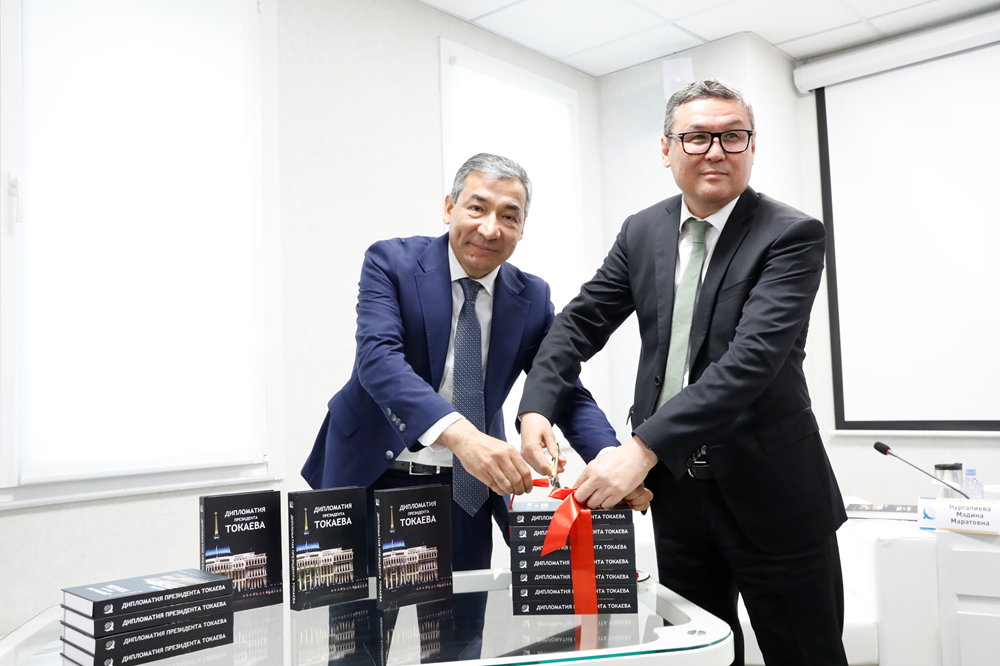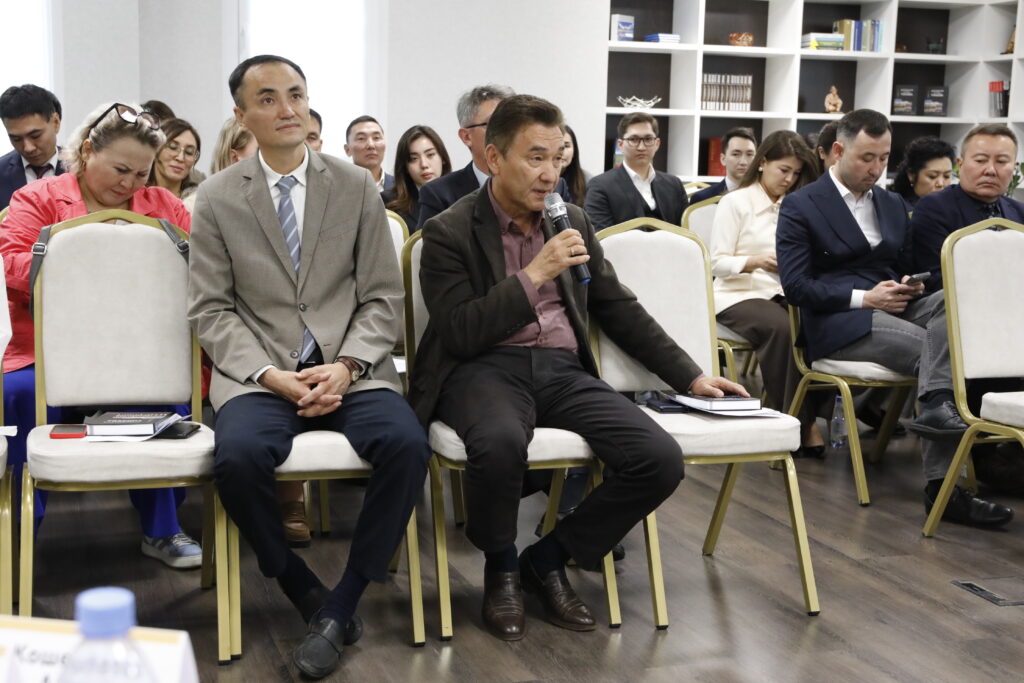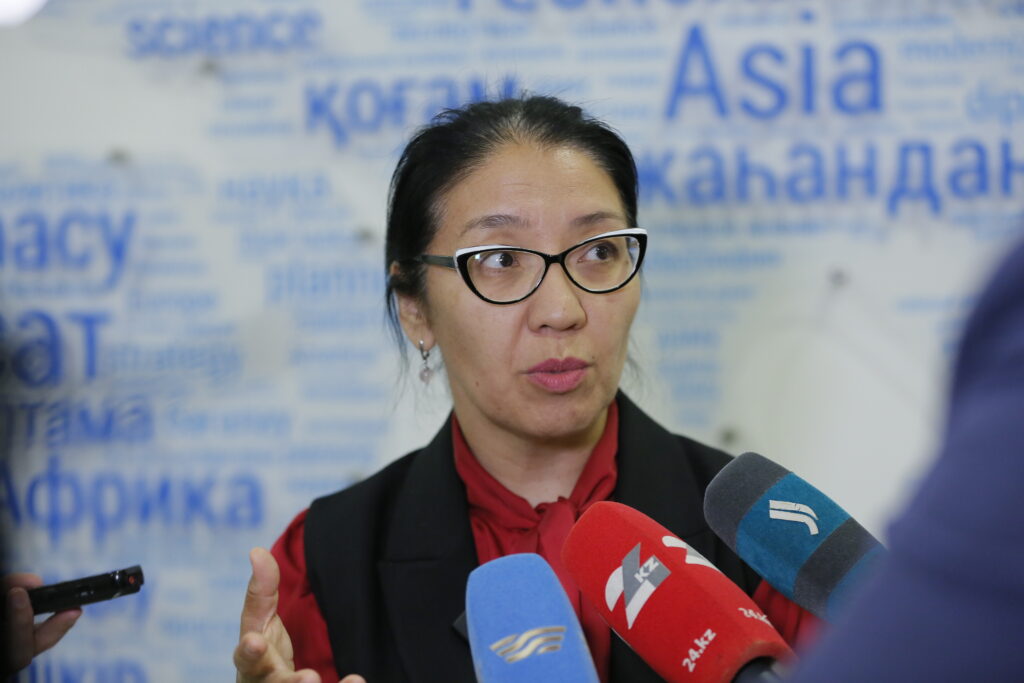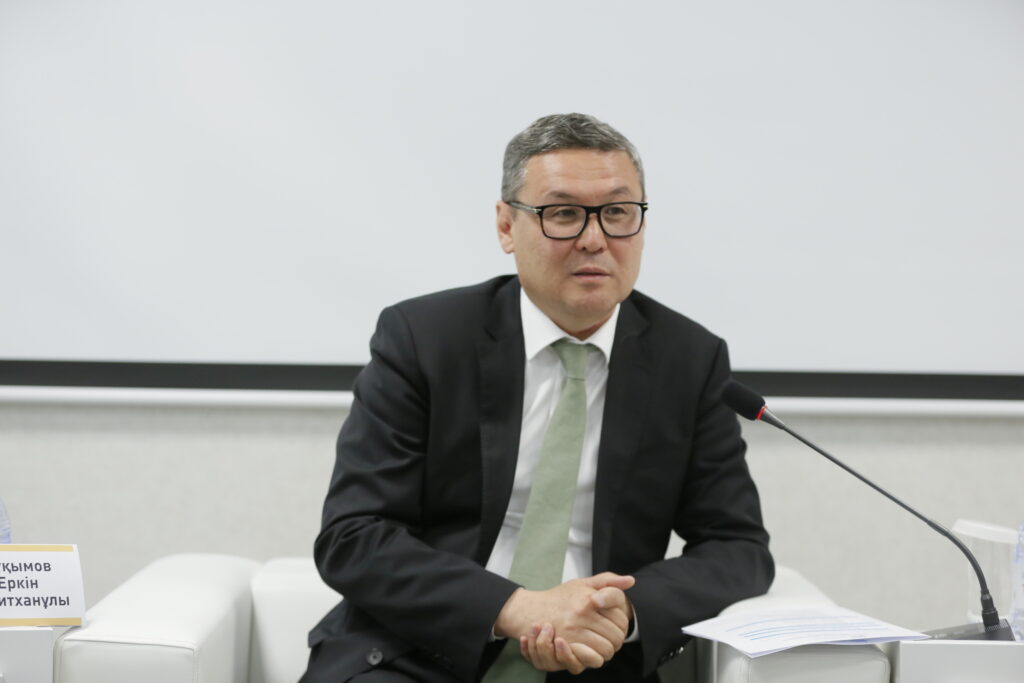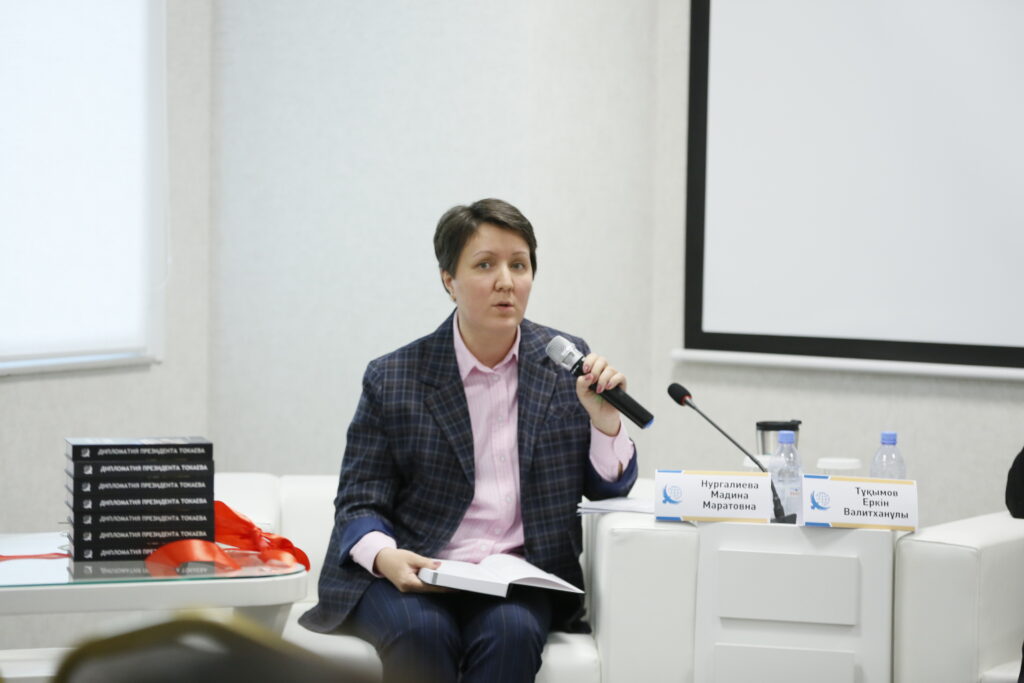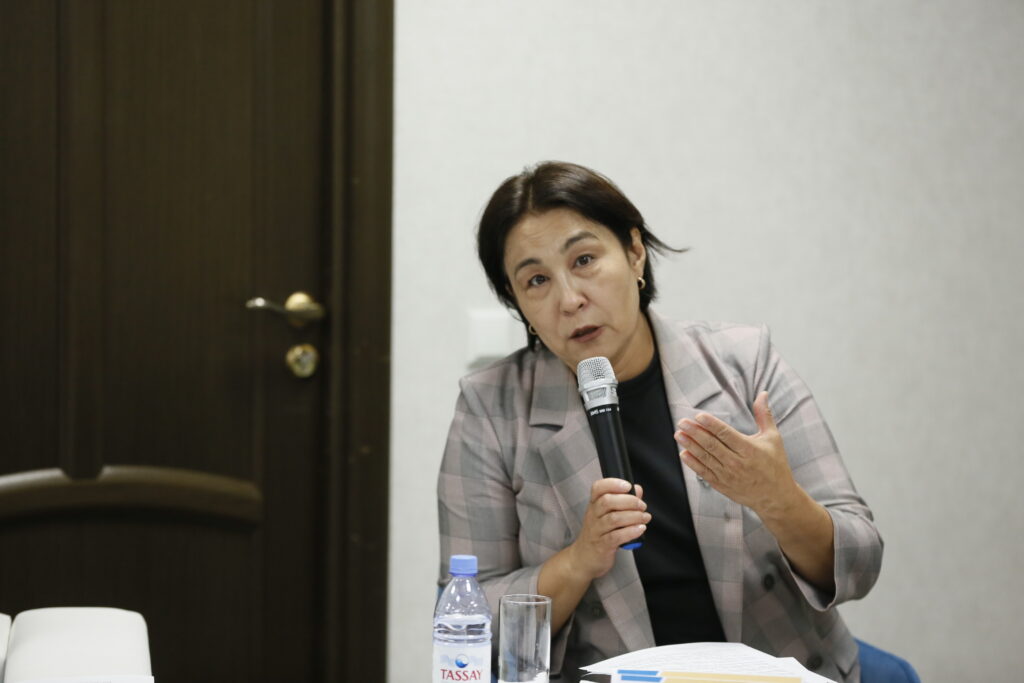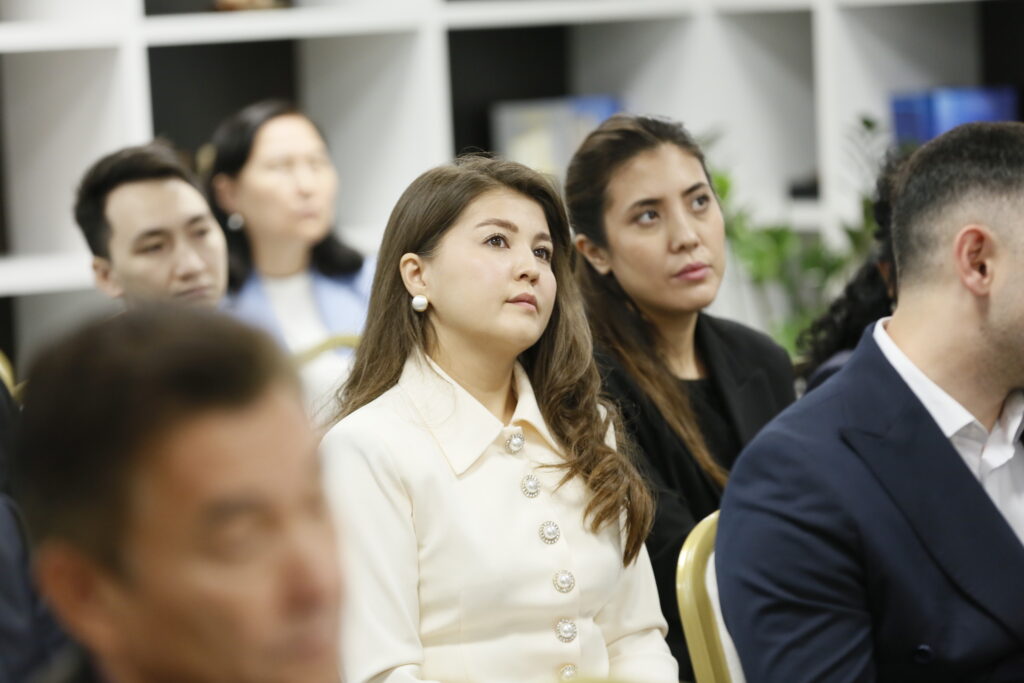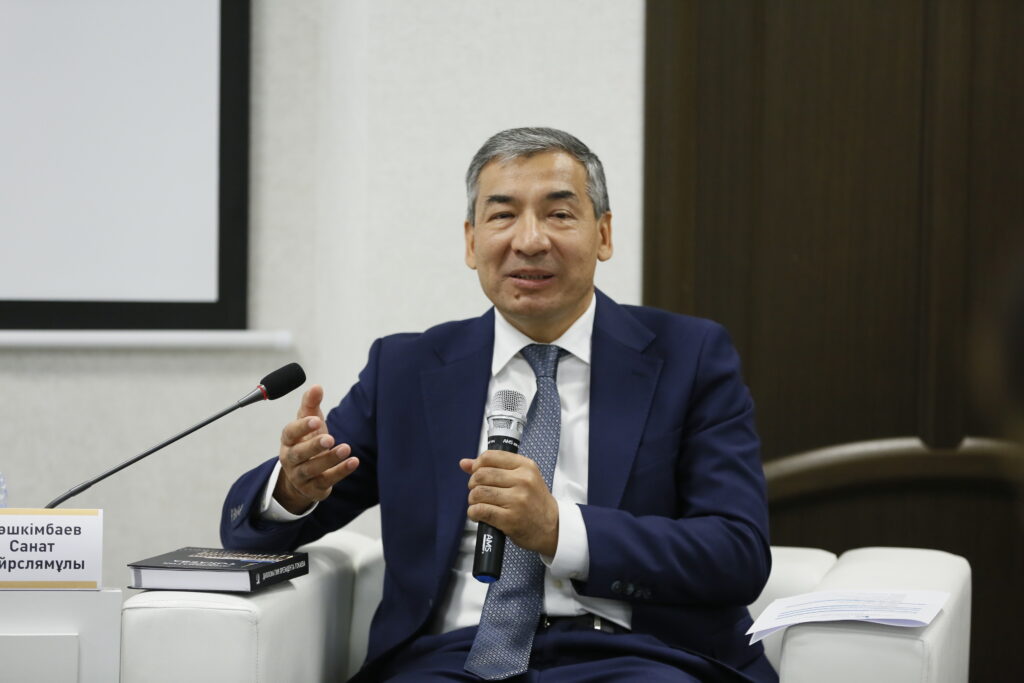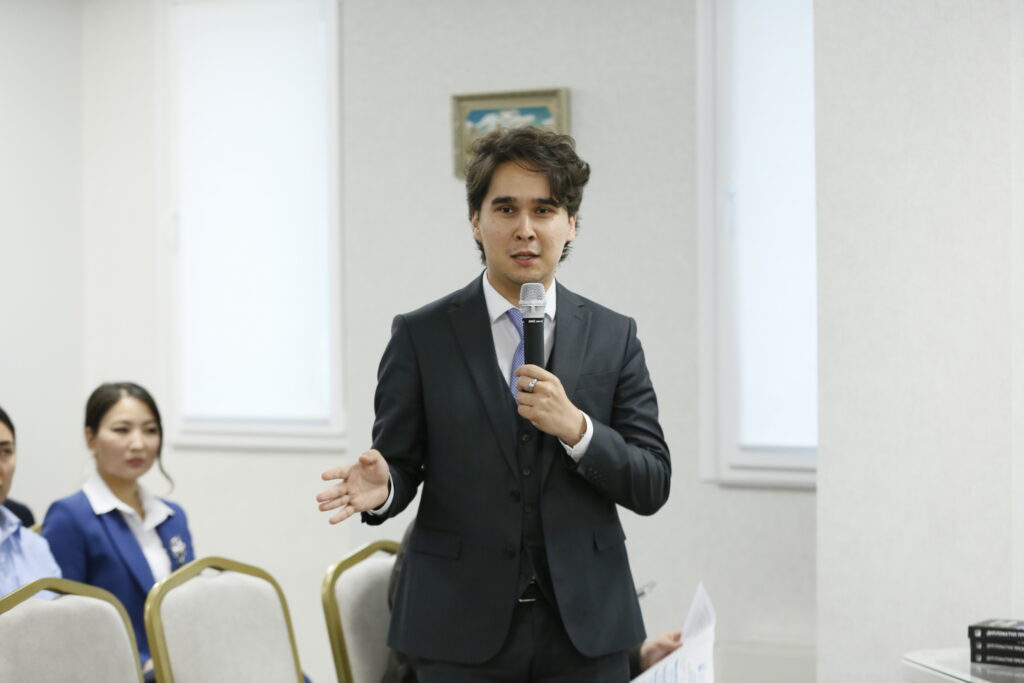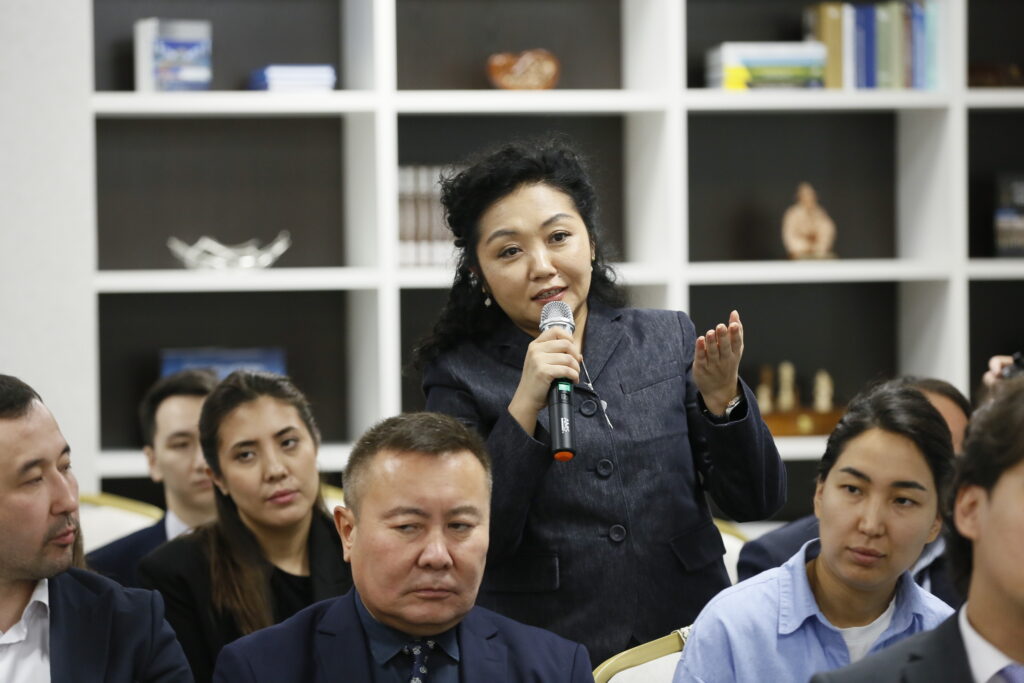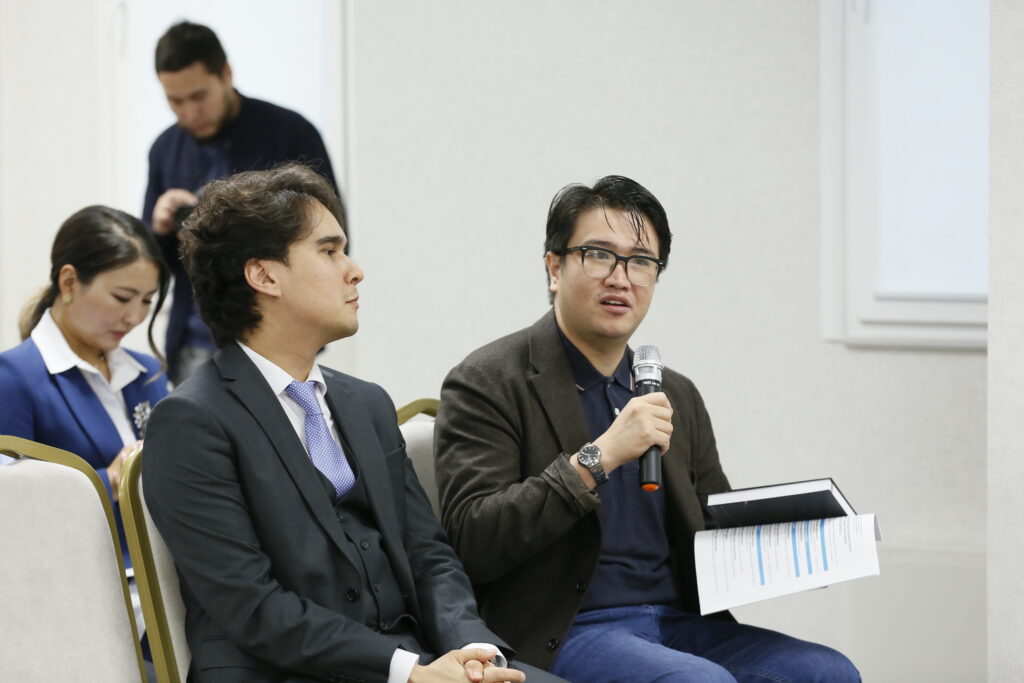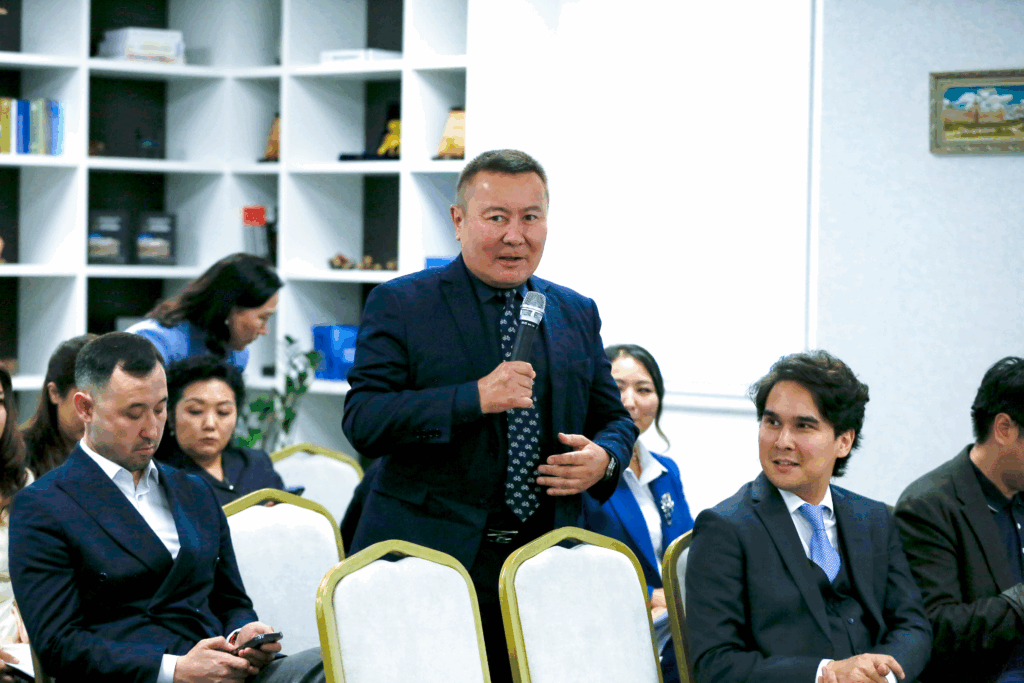On August 12, 2025, the Kazakhstan Institute for Strategic Studies under the President of the Republic of Kazakhstan (KazISS) hosted the presentation of a collective monograph by KazISS experts entitled “Diplomacy of President Tokayev”.
The authors of the publication are leading analysts and experts in the fields of international relations and global economy – Yerkin Tukumov, Sanat Kushkumbayev, Bulat Auelbayev, Yerbulat Seilkhanov, Dauren Aben, and Assel Aben.
The monograph offers an in-depth and multifaceted analysis of the foreign policy course pursued by Kassym-Jomart Tokayev as President of the Republic of Kazakhstan. The focus is placed on the three fundamental principles of his diplomacy, as well as on the strategic adaptation of the country’s foreign policy to the rapidly changing realities of global politics. Special attention is devoted to international crises – in Afghanistan and Ukraine – global climate threats, and other challenges shaping the context of contemporary diplomacy.
Opening the event, KazISS Deputy Director Alua Zholdybalina thanked the audience for their interest and emphasized:
«President Tokayev’s diplomacy is not just a foreign policy course. It is a holistic strategic vision that strengthens Kazakhstan’s position on the international stage and reflects the maturity of our state as a responsible partner in global processes.»
KazISS Secretary for Academic and Research Affairsand event moderator Aigul Kosherbayeva highlighted the key message of the study:
«When you hold this monograph in your hands, it becomes clear that Tokayev’s foreign policy initiatives shape Kazakhstan’s image as a stable, constructive, and responsible regional leader.»
A special place in the publication is devoted to analyzing the interconnection between domestic political reforms and the country’s foreign policy vector, offering a broader and more multidimensional perspective on Tokayev’s diplomatic strategy.
In the plenary session, one of the authors – Special Representative of the President of Kazakhstan for Afghanistan, Yerkin Tukumov – spoke about the motives behind the creation of the monograph:
«In our interactions with foreign partners, youth audiences, and students, we increasingly encountered questions about the essence of Kazakhstan’s foreign policy in recent years. There arose a need for a comprehensive analytical work. We hope our publication will serve as a useful source of understanding not only for experts but also for the wider public. »
Co-author of the publication and KazISS Chief Research Fellow Sanat Kushkumbayev noted that Tokayev’s diplomacy is the result not only of his presidential experience but also of a unique professional career:
«Kassym-Jomart Kemelevich was the longest-serving Minister of Foreign Affairs in the history of independent Kazakhstan. However, the diplomacy of a head of state is a matter of a different scale. His presidential period, which began in 2019, coincided with a series of acute international and domestic challenges – a kind of ‘perfect storm’ that Tokayev had to navigate in real time.»
The presentation was held in an open discussion format with the participation of KazISS leadership and experts, representatives of the Ministry of Foreign Affairs, leading universities, think tanks, and public organizations.
Director of the Institute of Public Policy of the AMANAT Party, Madina Nurgaliyeva, remarked:
«KazISS is rightfully considered the country’s intellectual core. That is why such a substantive and timely study was published under its auspices.»
Director of the Institute for Applied Ethnopolitical Studies, Talgat Kaliyev, stressed the importance of diplomacy as a pillar of state sovereignty:
«Foreign policy is the part of the iceberg that is rarely visible. But it is precisely what allows a country not only to preserve peace but also to assert its agency. Today’s stability in Kazakhstan is largely the result of consistent and balanced diplomacy.»
Participants emphasized the relevance and practical value of the monograph for the expert, academic, and diplomatic communities. The publication is not only a theoretical reflection on Kazakhstan’s foreign policy but also a practical guide demonstrating the country’s approaches to conflict resolution, mediation, and dialogue development.
The authors place particular emphasis on Kazakhstan’s contribution to strengthening stability within international organizations and promoting the ideas of peaceful coexistence in a polycentric world amid a crisis of global governance.
The monograph is intended for specialists in international relations, political scientists, students, diplomats, and all those interested in Kazakhstan’s strategic positioning in the modern world.
